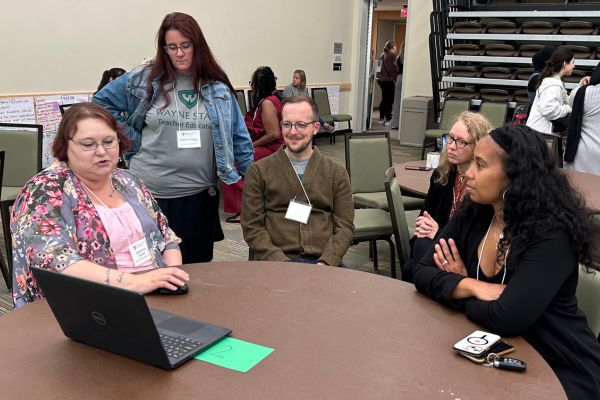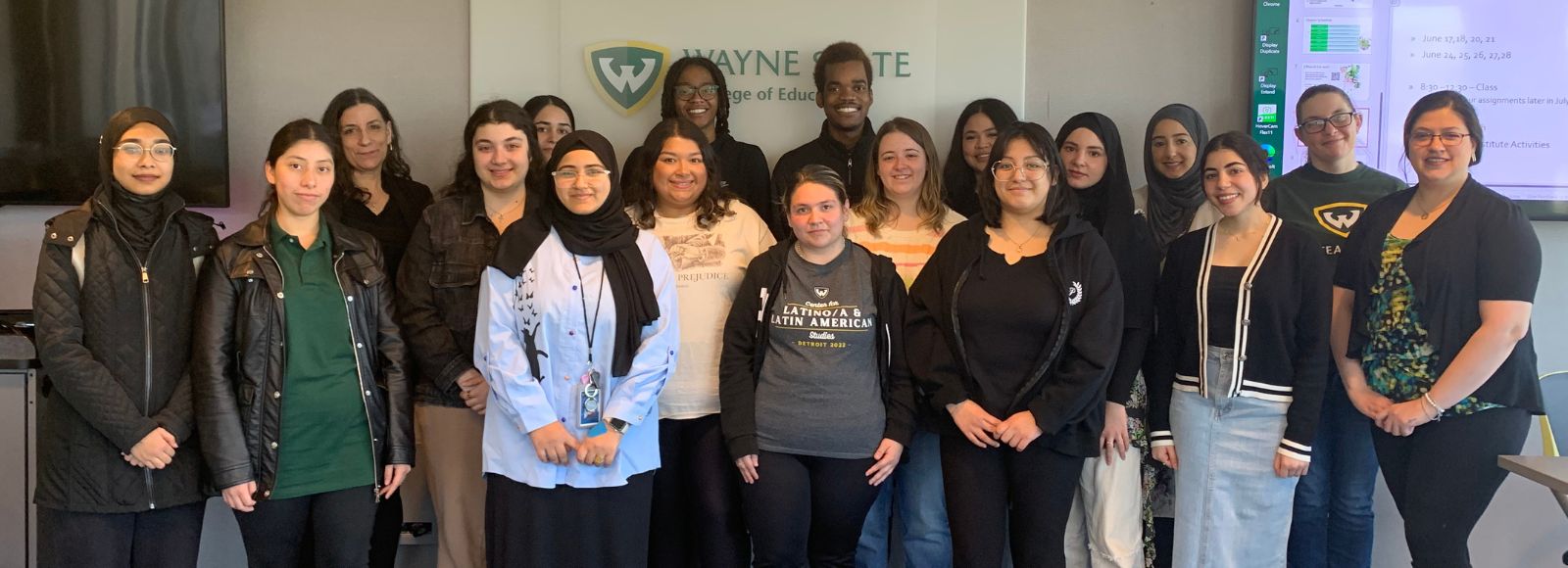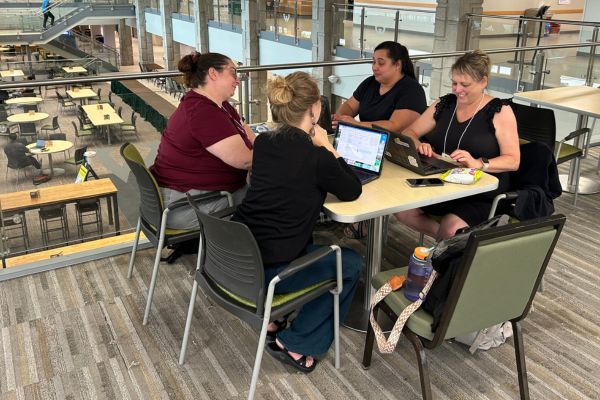Planting seeds for success: SEED Pathways grows a community of culturally responsive educators to help multilingual learners blossom
Imagine a classroom where a melody bridges languages and cultures. This is the goal of “Sustaining Community Knowledge and Language Practices for Educational Equity: Developing (SEED) Pathways for Teachers of Bi/Multilingual Students,” a program in the Wayne State University College of Education that equips educators like Tyler Rindo, a music teacher at Estabrook Elementary School in Ypsilanti, with the skills to help multilingual learners flourish.
Rindo discovered SEED Pathways when he learned about Ypsilanti Community Schools’ partnership with the college. The initiative offers preservice and in-service teachers training and resources to obtain their English as a Second Language (ESL) or bilingual teaching endorsement and prepares them to teach, engage and support multilingual learners and their families.
“Our international and non-English speaking populations have grown tremendously,” said Rindo. “About a third of my school has ESL students. I wanted to do a better job of supporting and serving them, so I applied.”
 Rindo is one of 24 in-service teachers from three districts — Crestwood School District, Oakland Schools, and Ypsilanti Community Schools — participating in SEED Pathways. Another 27 Wayne State undergraduates are also completing the required coursework to earn the Michigan Department of Education endorsement in ESL or bilingual education. Classes are held online and on Wayne State’s main campus.
Rindo is one of 24 in-service teachers from three districts — Crestwood School District, Oakland Schools, and Ypsilanti Community Schools — participating in SEED Pathways. Another 27 Wayne State undergraduates are also completing the required coursework to earn the Michigan Department of Education endorsement in ESL or bilingual education. Classes are held online and on Wayne State’s main campus.
The college launched SEED Pathways in 2022 with nearly $2.3 million from the U.S. Department of Education Office of English Acquisition. Over five years, the program will serve 110 teachers.
Creating inclusive classrooms
“Students enter classrooms with a wide range of knowledge, skills and strengths,” said Christina DeNicolo, associate professor of bilingual and bicultural education and principal investigator. “By collaborating with school districts, we support educators to effectively work with multilingual learners and create inclusive, vibrant learning environments where all students are valued.”
Multilingual learners represent a large and growing population. According to the Migration Policy Institute, over 10.8 million young children — or 32% of U.S. children under 9 — are dual-language learners, with at least one parent who speaks a language other than English at home. These students bring valuable linguistic and cultural assets into classrooms.
Kathryn Roberts, professor of reading, language, and literature and co-principal investigator, emphasized the program’s focus on equity.
“Multilingual learners bring a rich tapestry of languages and cultures,” she said. “Equity in diverse classrooms hinges on educators who can effectively guide them. By equipping teachers with the right tools, we ensure that students from all cultural and linguistic backgrounds can grow and thrive.”

Transforming teaching and learning
Katherine Shafer, an ESL teacher at Ypsilanti Community High School, is excited about how SEED Pathways is transforming her teaching.
“Everything taught is immediately applicable,” she said. “I recently learned a strategy for offering culturally relevant texts to introduce new topics. It allows students to connect with something they recognize and are proud of, while sparking interest in the subject. This program is making me a more culturally responsive teacher, which benefits all my students.”
SEED Pathways students take courses in cohorts, which research suggests builds community and boosts collaboration, creativity and completion rates. The program also goes beyond traditional coursework, pairing in-service teachers with two mentors — a member of the local cultural community and a certified ESL educator — to deepen participants’ understanding of multilingual issues.
“It’s been wonderful to learn from community mentors,” Rindo said. “I meet regularly with a Swahili-speaking parent who is new to the U.S. and has children at my school. The perspectives shared are invaluable.”
Empowering educators for today’s global economy
Dean Denise Taliaferro Baszile underscored the program’s broader impact.
“The College of Education is committed to producing culturally responsive educators who transform lives and build brighter futures for all,” she said. “The ability to connect, communicate and collaborate with multilingual learners and their families is essential in today’s global economy. Programs like SEED Pathways embody our commitment to equity, excellence and engagement; empower educators to foster innovation in their classrooms and communities; and accelerate mobility for our students and the individuals whose lives they touch.”
“ SEED Pathways isn’t just about teaching methods; it’s about transforming mindsets,” Shafer agreed. “I view my multilingual students not as challenges but as opportunities to create a richer learning environment for everyone.”
SEED Pathways isn’t just about teaching methods; it’s about transforming mindsets,” Shafer agreed. “I view my multilingual students not as challenges but as opportunities to create a richer learning environment for everyone.”
With hands-on, practical learning, SEED Pathways is helping teachers like Rindo and Shafer become more effective, culturally responsive educators, equipped to serve and support multilingual learners in today’s classrooms.
“This program is rigorous, but it is also hands-on, applicable and practical,” said Rindo. “And it is absolutely making me a better teacher.”
Multilingual learners are an asset in today's classrooms. Become part of a community of culturally responsive educators and join the movement for educational equity by earning an endorsement, certificate, or degree in English as second language or bilingual/bicultural education. Learn more at education.wayne.edu/literacy-education.